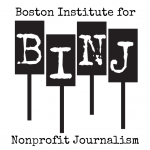Photo via US Department of Homeland Security / Mani Albrecht
Diabetes researcher claims she was unlawfully denied entry to US
A Canadian scholar hired for a prestigious diabetes research fellowship at Harvard Medical School and Beth Israel Deaconess Medical Center says she was wrongfully denied entry to the US and discriminated against because she was born in Iran, according to details in a federal suit.
Harvard Law School’s Immigration and Refugee Clinical Program filed an injunction in the US District Court for the District of Massachusetts, as part of a lawsuit originally launched in February of this year. The students, professors, and attorneys are acting on behalf of the researcher and doctor, Maryam, who didn’t want to disclose her last name publicly.
They’re seeking to order the State Department to issue a decision on her pending visa application by June 6.
The group additionally filed a civil rights complaint with the Department of Homeland Security’s civil rights office at the end of April.
“I worked very hard for the last five years in order to be able to get this prestigious dream fellowship,” Maryam said. “My hope was to go to Harvard and develop my knowledge of therapies in response to unmet needs in the field of diabetes. I was hoping to utilize this opportunity upon my return to Canada and help diabetes patients in Canada.”
On April 2, 2021, Maryam and her husband Babak, and two children, then ages five and one, attempted to cross into the US at a North Dakota-Manitoba part of entry with their visas. Babak works for the Canadian government but agreed to take a yearlong leave to take care of their children in Boston while Maryam studied and worked with Harvard.
Border agents detained and interrogated Babak about his mandatory military service in Iran, and about his political opinions before ordering his removal, according to the complaint. Their fingerprints were taken against their will.
The couple has not lived in Iran since 2007, and has worked abroad and in Canada, where they acquired their citizenship in 2018, since. Maryam was issued a form that said she was denied entry because of “immigrant intent”—basically, insinuating that she would stay here illegally beyond the permitted two years. She said they were held with their children for almost eight hours at the border point, and that she wasn’t allowed to get the baby formula for most of that duration.
In the complaint, the couple notes they’d gone on vacation and to conferences in the US without issue and hadn’t stayed beyond the time allowed. They also owned a home and a boat in Canada, had citizenship there; plus, Babak was still employed there, and they fully intended to return after the fellowship.
Maryam was told to fly to the US alone in two weeks, which she tried on April 18 at the Toronto airport. But this time, she was searched, questioned for three hours, and told she had to wait for her husband to “obtain a proper entry document.” She was also told there was a travel ban, although that had been revoked three months earlier.
Maryam said she was asked if she had ever received spy training, and if her chemistry teacher father knew how to make bombs. She said she was given a document in a language she couldn’t read, and was told it was Arabic and that she was taught it in school.
Another US border agent outright told her she was Iranian. “I replied that I am a Canadian citizen traveling with a Canadian passport. He said, You are a native of Iran and therefore you are Iranian,” she recounted.
“The officer then told me to stop referring to myself as ‘Canadian’ and pointed to other passengers who were scanning their passports and said, You see them? Those are Canadians, not you.” She was told to apply for a visa through a US consulate because she was “Iranian, not Canadian” according to the civil rights complaint.
“I was just shocked,” Maryam said. “I had so many bad dreams after that, regarding that Toronto questioning. It just didn’t make sense to me at all.”
As a result of the trauma of being denied entry, she said she was prescribed anti-anxiety and anti-depression medications, and lost a significant amount of weight.
“I am seeing a therapist and yet I still cannot overcome the pressure that I felt that day,” she said.
The couple applied for J-1 and J-2 visas after being denied entry. Those allow research scholars, professors, and their families to legally live and work in the US, in programs that are supposed to foster a sense of cultural exchange. These are not required of Canadian citizens, but they’re doing it anyway.
The suit also alleges that federal immigration agencies are in violation of their own rules, which state that processing for her specific type of visa has to happen within 30 days.
Maryam was chosen from around 200 applicants to take part in a two-year fellowship to develop gene therapy approaches for Type 1 diabetes, according to the suit. Her interest in the disease stems from watching her grandparents and father-in-law die from complications related to diabetes.
“I believe further research in this area could have an incredible impact on the lives of patients suffering from type I and type II diabetes,” Maryam said. “Also, I believe further research could decrease the financial burden these diseases impose on the health care systems around the world.”
The complaint reads: [Maryam] has already lost the opportunity to begin her fellowship, and now risks losing her position at BIDMC, if her visa is not issued before her postponed start day of June 6, 2022.”
The lawsuit and preliminary injunction motion are against the State Department, Department of Justice, and Department of Homeland Security, which has jurisdiction over CBP. Customs and Border Protection said via email it doesn’t comment on matters under litigation, but that lack of comment “should not be construed as agreement or stipulation with any of the allegations.”
A State Department spokesperson said it doesn’t comment on matters under litigation.
Maryam’s application for a J-1 visa remains pending.
This article is syndicated by the MassWire news service of the Boston Institute for Nonprofit Journalism. If you want to see more reporting like this, make a contribution at givetobinj.org.











